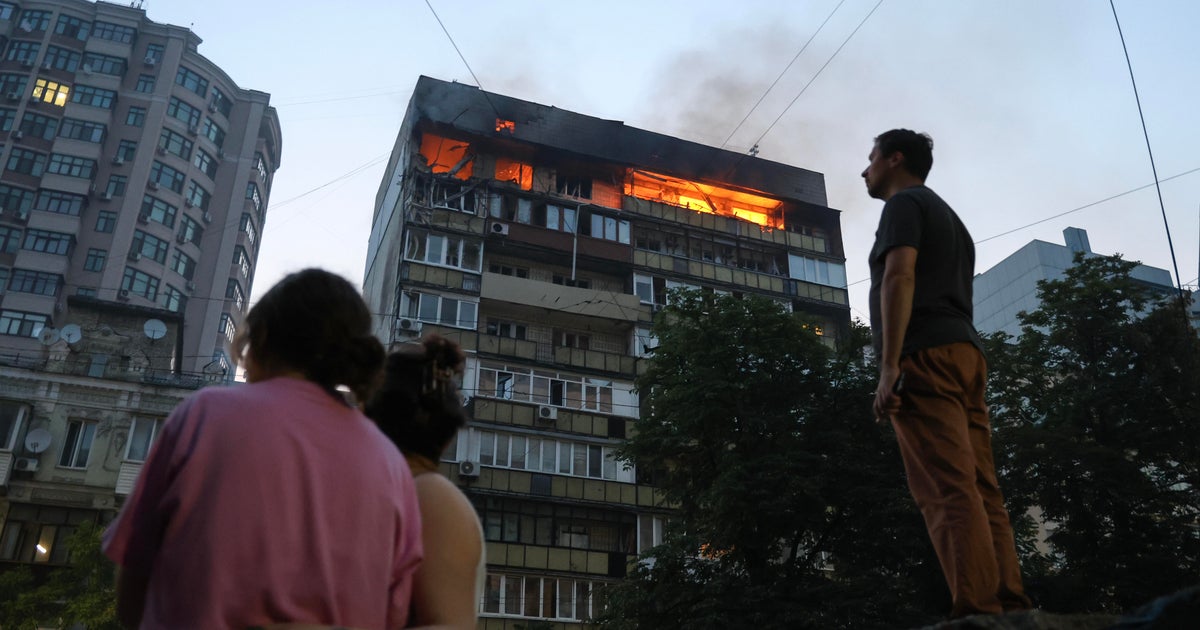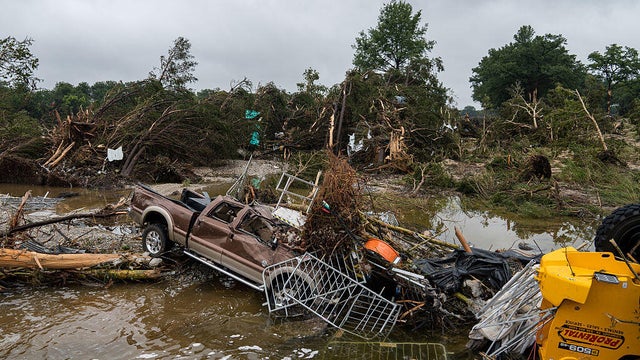

No response returned

A pause on some U.S. weapons shipments to has eased and the arms are flowing again, but not fast enough to stop Russia's relentless and deadly aerial assault.
For the and more than a dozen missiles at Ukraine, including a heavy assault on the capital Kyiv, President Volodymyr Zelenskyy said Thursday. Two people were killed and 13 more were wounded as fires sprung up in at least five districts around the city, according to Zelenskyy, quoting emergency officials.
Residents fled to bomb shelters, as they have done countless times since Russia launched its full-scale invasion more than three years ago, with many taking cover in underground metro stations. A grey haze of smoke hung in the air.
Ukrainian officials said Russia had launched 400 drones and 13 missiles overnight. The previous evening, the Ukrainian defense ministry said Russia had launched 728 drones and 13 missiles — calling it Moscow's biggest aerial assault since the war began.
President Volodymyr Zelenskyy, in Rome for a global conference on Ukrainian reconstruction, implored world leaders to give more support. He called for a Marshall Plan for his country, referring to the U.S. government-funded program to rebuild the economies of Western Europe in the wake of World War II.
"Rebuilding Ukraine is not just about our country. It's also about your countries, your companies, technology, your jobs, the way we rebuild our country can also modernize your infrastructure and industries," Zelenskyy told the political and business leaders from across Europe at the Ukraine Recovery Conference.
He also called on Europe to agree to use all of Russia's frozen financial assets, estimated to be worth about $450 billion, to aid in Ukraine's recovery.
"Not only the income from these assets, but the assets themselves must be used, and much more actively than they are now, to help save lives," he said.
The goal of the fourth annual Ukraine Recovery Conference is to raise more than $500 billion in government and private funding for the eventual reconstruction of the country. More than 100 governments are represented at the two-day conference. About 40 international organizations, including the World Bank and various U.N. agencies, and more than 2,000 private companies are also at the summit — many looking to partner with Ukrainian counterparts on projects to rebuild everything from defense to energy infrastructure over the next decade.
The Rome conference comes a day after Zelenskyy met in the Italian capital with Keith Kellogg, President Trump's special envoy for Ukraine and Russia, and separately with Pope Leo XIV.
The pontiff reiterated the Vatican's willingness to serve as a mediator in the war sparked by Russia's ongoing invasion of Ukraine, however the Kremlin has previously said it would not be appropriate for the Catholic Church to serve as a mediator between the two Christian Orthodox countries.
Zelenskyy described his meeting with Kellogg as "substantive," adding in a social media post that they had discussed additional U.S. support in the form of more weapons deliveries to Ukraine, and support for harsher sanctions against Russia.
"We discussed arms supplies and strengthening air defense. Against the backdrop of increased Russian attacks, this is one of the priorities," wrote Zelenskyy. "We also discussed the purchase of American weapons, joint defense production, and localization in Ukraine."
A U.S. official confirmed to TheNews on Wednesday that shipments of some munitions, including 155mm artillery rounds and precision guided GMLRS rockets, which had been about a week earlier, had resumed flowing to Ukraine. The resumption comes after President Trump that additional defensive weapons would be sent to Ukraine.
"We're going to send some more weapons. We have to. They have to be able to defend themselves," Mr. Trump told reporters at the White House on Monday night. He said the shipments would consist of "defensive weapons, primarily."
Zelenskyy has also pressed U.S. officials to send additional Patriot missile systems, which are used to intercept Russian missiles and fighter jets.
Asked specifically about those weapons — which were among the items that the Pentagon paused shipments of last week, citing limited U.S. stockpiles — Mr. Trump said Wednesday that he was considering sending more to Ukraine.
Zelenskyy and Kellogg also discussed bilateral legislation winding its way through the U.S. Congress that would impose 500% tariffs on the goods of any countries that buy Russian oil, co-sponsored by Republican Senator Lindsay Graham and Democratic Senator Richard Blumenthal.
Halfway around the world in Kuala Lumpur, Malaysia, U.S. Secretary of State Marco Rubio met Thursday with his Russian counterpart, Foreign Minister Sergey Lavrov, on the sidelines of the Association of Southeast Asian Nations (ASEAN) regional security forum.
This meeting came after Mr. Trump announced the new weapons shipments to Ukraine, and sharply criticized Putin for talking "bull***" about his sincerity for achieving peace in Ukraine.
Rubio said after the meeting that the U.S. and Russia had exchanged new ideas to reach a deal to end the Ukraine war, but he offered no details.
"I think it's a new and a different approach," Rubio told reporters. "I wouldn't characterize it as something that guarantees a peace, but it's a concept that, you know, that I'll take back to the president."
Rubio noted Mr. Trump's growing disappointment "that there's not been more flexibility on the Russian side," adding: "We need to see a roadmap moving forward about how this conflict can conclude."
"We shared some ideas about what that might look like," he said of his meeting with Lavrov, adding that the two sides would "continue to stay involved where we see opportunities to make a difference."
In a statement after their meeting, Russia's Foreign Ministry called it a "substantive and frank exchange of views," during which both nations "reaffirmed their mutual commitment to finding peaceful solutions to conflicts."





